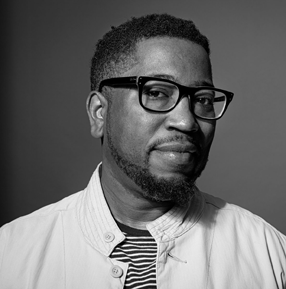Language of the Moon
As a child I wanted as many letters
in my bloodstream as the planet Mercury
would allow and so traveled the city
on buses late afternoons and read all the billboards
high above the streets and byways,
on sides of factories and churches and never
heard the sermons of the displaced
or blustery talk of founding fathers, and saddened
when a route snaked through long tunnels,
and then eased when reemerged
out of the murder of light.
I could feel my veins thicken like the winnings
of a Powerball, and the mystery of women
lounging around a gray-bearded man in a silk
smoking jacket drinking a tumbler of cognac
was like the easeful glide of a narcotic dream.
My mouth puckered whenever lemon-colored
arches appeared five stories above the city
like golden gates to an unforeseen heaven.
As a rule, I never glanced at other commuters
or curators in loosened ties and tuxedos
who clutched brown-papered bottles
and nodded to a stillness as though murdered in a film.
Instead, I glimpsed myself looking out a window,
awed by Cartier timepieces and luxury cars
that asked was I hungry for speed
or ordered me to let my body drive.
I ate advertisements like sea waves eating a coastline,
and though my sense of self was as bruised as a moldy peach,
I learned to infrared my longings from the inside
and to tally my suspicions from a distance, and now,
when I read a newspaper, I flutter like a sparrow
at a birdfeeder, and when language spills out
of my skull like a massive cruise ship docked
and towering over a line of ramshackle huts
on an island whose blessed poor gaze up
as though a locker of dollars fell at their feet,
my brain closes and my veins burst
as if pollinating the white face of the moon.
Copyright © 2022 by Major Jackson. Originally published in Poem-a-Day on July 7, 2022, by the Academy of American Poets.
“The state of Vermont forbids advertising billboards, the kind that populate the skylines of big cities and American highways—one of those legislature measures that allowed the Green Mountain State to preserve its iconic, quintessential New England quaintness. Upon first arrival to the state, this is what one notices, especially if, like me, one grew up with the visual noise of advertisements that loomed, Dali-like, in the sky as either propaganda or promotion of products, which, in my neighborhood, was chiefly fast food, cigarettes, alcohol, and lottery tickets—all the good stuff. For the critically-minded, however, billboards taught us how to semiotically read the magical (or damaging) workings of text and image, which is its own skill set and gain.”
—Major Jackson

